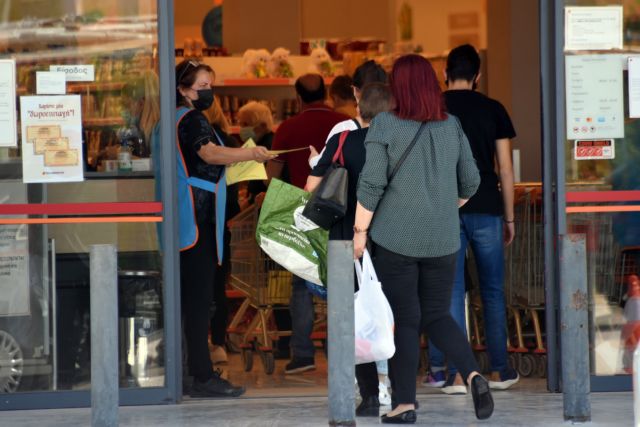
A new below the belt blow at the expense of Greek food and the Mediterranean diet has come from the powerful EU countries and large multinationals in the industry.
Olive oil, cheese, and honey, three flagship Greek products, as well as other traditional delicacies are targeted by an algorithm that simulates or even degrades them in terms of their nutrients and their scientifically proven contribution to promotion. health with foods that are less healthy.
This is the Nutri-Score food labeling system, which France applies on a voluntary basis in its market. This country, having concluded an informal alliance with Belgium, Germany, Luxembourg, the Netherlands, and Spain, seeks to establish this model as a single and mandatory model in the European Union.
These countries, as well as hosting food and beverage multinationals (Nestle, Danone, and Auchan), are following in the footsteps of the European Commission, launched in May 2020, to establish a single and mandatory European labeling system on the front of packaging of foods that will push consumers to healthier food choices and eating habits.
Consumers, according to the Commission’s reasoning, will choose foods with a lower content of saturated fat, salt, and sugar. The European Food Safety Authority (EFSA) is due to issue an opinion to the Commission by March 2022, which will be in public consultation with social, governmental and scientific bodies, with final decisions expected by the end of next year.

However, as mentioned above, the seven aforementioned powerful countries are pushing for the adoption of the Nutri-Score as a mandatory labeling system. The aforementioned multinational companies apply it to these markets.
“The problem with this system is that it classifies e.g. olive oil with ketchup and cola light in the same category,” explains to NEA newspaper food chemist and associate professor at the Department of Dietetics – Nutrition of Harokopio University Tzortzis Boskou. “It takes into account the nutritional value per 100 grams and not per portion or percentage of daily needs. It does not take into account that certain foods are used as ingredients in the preparation of other foods. ”
Boscu also emphasizes that “it is important for the consumer to form a healthy eating habit through a label”. He also adds, “with the category of colors we lead to food racism; one person eats red food, another eats green”.
Greece through the Ministry of Rural Development and Food has opposed this model of the seven countries. It has formed alliances with Italy, Cyprus, the Czech Republic, Hungary, Latvia, and Romania. Has succeeded with an amendment in the European Parliament to exclude olive oil and PDO, PGI, and other products from the Nutri-Score score to the final decision of the Commission.
At the same time, the Athens Chamber of Small Manufacturing Industries (ACSMI) is mobilizing , while associations such as the Meat Processing Industries union, the Union of Standardized Olive Oil Producers (SEVITEL) and the Association of Exporters of Crete have already intervened publicly.
Speaking to NEA, the general secretary of ACSMI, Giannis Manos, talked about the effects on companies that produce Mediterranean food: “If these foods are classified in the red category, there will be a risk to the viability of companies and agricultural production, consumers will be misled about the nutritional value of food.”
Latest News

Corruption Still Plagues Greece’s Driving Tests
While traffic accidents continue to claim lives on Greek roads daily, irregularities and under-the-table dealings in the training and testing of new drivers remain disturbingly widespread

Pope Francis Died of Stroke and Heart Failure Vatican Confirms
As news of the official cause of death spread, tributes poured in from across the globe. The 1.4 billion-member Catholic Church is united in grief, remembering a pope who championed inclusion, justice, and compassion

Increase in Both Museum Visits, Revenues for 2024
As expected, the Acropolis was the top archeological site in the country, followed by Sounion, Mycenae, the ancient theater of Epidaurus, and Vergina in northern Greece

Where Greece’s Tourists Come From: A Look at 2025’s Top Visitor Markets
The United Kingdom continues to hold the top spot as the largest source of incoming tourism, with 5.6 million seats booked for Greece this summer — up 2.2% from last year. This accounts for 20% of all international air traffic to Greece

Pope Francis: A Pontiff Who Reshaped the Papacy and Sparked a Global Conversation
His first words from the balcony of St. Peter’s Basilica—“Brothers and sisters, good evening”—set the tone for a pontificate that would challenge norms, favor mercy over dogma, and bring the papacy closer to the people.

When Blue Skies was Unmasked as ND’s Political ‘Slush Fund’
The fact that so many top New Democracy (ND) party cadres were paid by the firm Blue Skies, owned by Thomas Varvitsiotis and Yiannis Olympios, without ever citing this publicly, raises very serious moral issues, regardless of the legality

Greek Women’s Water Polo Team Top in the World after 13-9 Win Over Hungary
The Greek team had previously defeated another tournament favorite, the Netherlands, to reach the final.

S&P Raises Greek Rating; BBB with Stable Outlook
S&P’s decision raises the Greek economy to the second notch of investment grade ladder, at BBB with a stable outlook.

Greek Tourism Optimistic About Demand from American Market
A recent survey by MMGY Global, conducted from April 3–5 with a sample of 1,000 U.S. adults, found that 83% of Americans still intend to take leisure trips over the next 12 months, a slight drop from 87% in late February

New Exposé by Domumento Reveals Nefarious Triangular Link of ‘Black Money’ with New Democracy, Blue Skies, & Truth Team
The latest exposé by the Documentonews.gr news site lays bare what appears to be a surreptitious path of indirect financing of ND through the business sector—transactions that, as widely understood, rarely occur without expectations of reciprocal benefit











![Πλημμύρες: Σημειώθηκαν σε επίπεδα ρεκόρ στην Ευρώπη το 2024 [γράφημα]](https://www.ot.gr/wp-content/uploads/2025/04/FLOOD_HUNGRY-90x90.jpg)


![Ξενοδοχεία: Μεγάλο το ενδιαφέρον για επενδύσεις στην Ελλάδα – Η θέση της Αθήνας [γραφήματα]](https://www.ot.gr/wp-content/uploads/2025/03/Athens-hotels-90x90.jpg)


![Airbnb: Πτωτικά κινήθηκε η ζήτηση τον Μάρτιο – Τι δείχνουν τα στοιχεία [γράφημα]](https://www.ot.gr/wp-content/uploads/2024/07/airbnb-gba8e58468_1280-1-90x90.jpg)
























 Αριθμός Πιστοποίησης
Αριθμός Πιστοποίησης